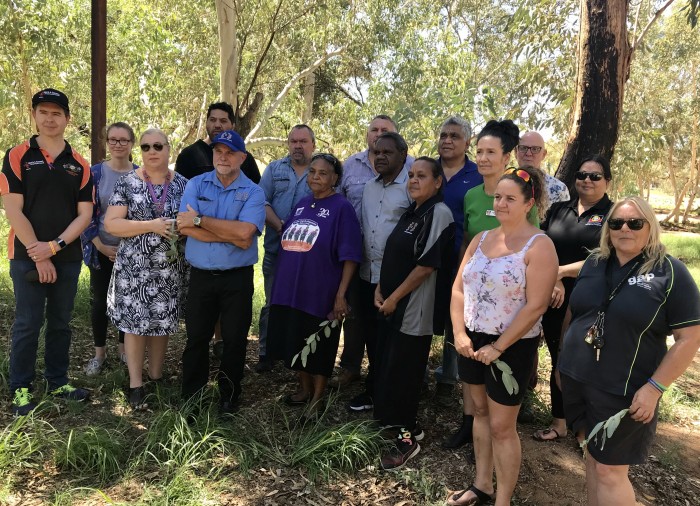
A coalition of 13 Aboriginal organisations of the Northern Territory* want the national cabinet to immediately guarantee the supply of affordable food and other basics in locked-down remote communities.
Two weeks ago, the commonwealth and NT governments met with major supermarkets, suppliers and three major remote retailers, yet remote community owned stores are still waiting to hear about any government interventions that might flow from that meeting that will take the pressure off.
“We are getting daily reports of remote stores struggling to supply basic goods,” said John Paterson, the CEO of the Aboriginal Medical Services Alliance of the NT.
“Some stores are running out of fresh food three days after their weekly delivery. Under COVID-19 travel restrictions small, community owned stores must suddenly meet 100% of people’s needs across a much greater range of products. Some stores have had to triple their usual orders.
“In recent weeks, the big supermarkets have responded to panic buying down south by sweeping up the bulk of goods from manufacturers and producers. Independent suppliers are struggling to get what they need for remote stores,” said John Paterson.
“We want an agreed proportion of these essential goods set aside for the independent suppliers. This can’t be solved through donated goods. It needs a systemic response from government.
“Prices in remote community owned stores are also a big issue. This is borne out in every market basket survey. High freight costs and limited purchasing power mean prices can average 60% higher than at major supermarkets.
The coalition of health services, land councils and other Aboriginal organisations is calling for a 20 per cent point-of-sale subsidy of essential food, cleaning and hygiene products, as well as winter bedding and clothing in remote community stores.
“A direct consumer subsidy of selected items is the best way to guarantee that residents who are no longer able to shop around can afford the basics,” said Mr Paterson.
Community stores say invoicing the federal government for 20 per cent of their sales once a fortnight would place the least administrative burden on them.
“Already, remote community residents are taking backroads into regional centres to access essential and affordable supplies they can’t get at home. Towns are where they are most likely to contract coronavirus.”
“We understand fresh fruit, vegetables and meat are not in short supply in the southern states and distributers are actively planning to address current shortages in remote stores in central Australia. It is critically important that we understand how this will work, the CEO of the Central Land Council, Joe Martin-Jard, said.
“However, we believe subsidies on essential goods at point of sale coupled with a supply guarantee will make a huge difference.”
“We urge the national cabinet to take action, before it is too late, because time is all remote Aboriginal communities have on their side in their fight against the virus. We are all affected by this crisis, some more than others when it comes to accessing affordable food,” Central Australian Aboriginal Congress CEO Donna Ah Chee said.
“We want preventative action. This is all about making sure remote Aboriginal people can depend 100% on their one community store as they are not in a position to shop around. We have no more time to waste.”
